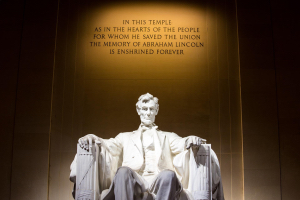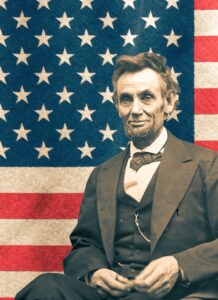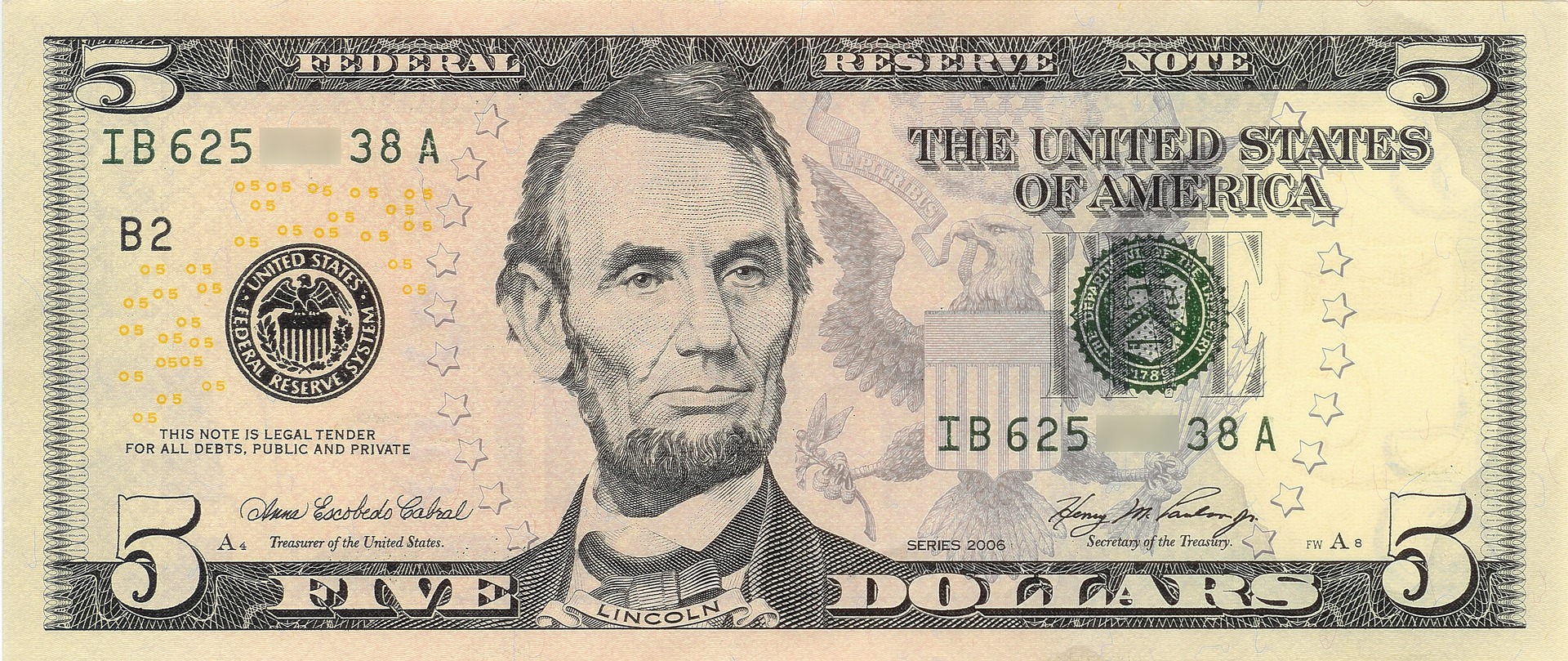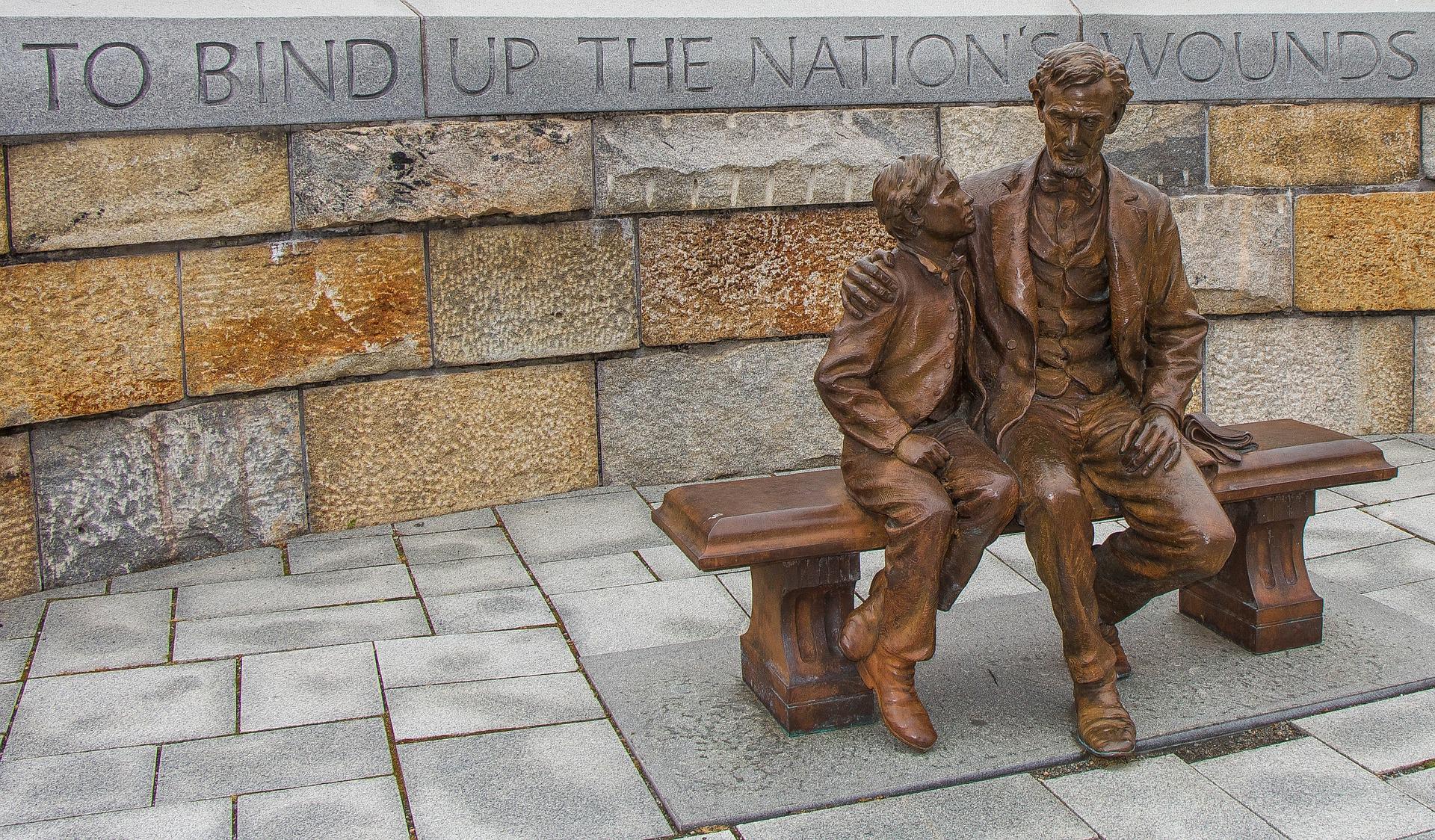
Pages from history
 By Vivekanand Jha
By Vivekanand Jha
The intellectual honesty of Abraham Lincoln continues to inspire generations of leaders

Abraham Lincoln, the 16th President of the USA, had set an unprecedented record in the annals of history: losing every single battle in life which finally culminated in his coronation as the 16th president of the USA and, that too, at the age of 52.
As a child, Lincoln, invariably suffered from the crippling penury brought about by his father’s fluctuating career graph: his father, a carpenter by profession, would seldom get regular employment. The boy Abraham, compelled by the evolving situation, had to accept a job in a grocery shop. One day, an old man walked into his shop to make some purchases; after due purchases, he forgot to collect the balance and left the shop. The old man was startled to see the physical manifestation of that boy early morning in front of his shop. The boy reached out to hand over the balance which was almost in peanuts. Beholden to the boy for a while, the old man looked up to him with expectations. The boy, looking at the flabbergasted expression of the old man, said, “Sir, you left behind this buck with us, which we legitimately owed to you and thus, I had to come to return it to you”. Bewildered by the revelation, the old man nodded, but then said, ‘ for these crumbs, you walked almost nine miles to and fro, don’t you think you could have retained it by way of tips, rather than taking such a painstaking effort to come this far to do the needful?’. “No Sir”, Abraham replied, “It was your money, not mine, hence, I had to return it to you”. Unequivocally, this profusely impressed the old man, who circulated the news around about the intellectual honesty of that boy. Small wonder then, even in childhood days, Abraham began to be known as an intellectually honest man which determined his course of action in life.

The slice of misfortune continued to bedevil Abraham. Barely at the age of 21, he went on to become a lawyer. He took a loan of 1,500 dollars from someone. However as the chunk of luck would have it, his legal practice floundered, inevitably making it difficult for him to repay the debt. Nonetheless, the man who had lent him money, unfailingly believed that Abraham would die, yet before he left for his heavenly abode, he would repay his debt. Indeed Abraham did so: after 15 years, he returned the money to his lender. At the age of 28, he contested the municipal election, which he lost terribly. In the meanwhile, his wife died and the personal tragedy engulfed him in its octopus-like grip. He contested the Vice- Presidential election at the age of 47, which too he lost. But then the man of iron will, with intellectual honesty being his characteristic trait, never called it quits. At the age of 52, he contested the Presidential election of the USA, where he came off with flying colours: he went on to become the 16th President of the USA.
In the primary contest, his rival William H. Seward was far more competent than him. However, he was considered a self-conceited man with a condescending attitude toward others. No wonder, the party rose to overwhelmingly support Abraham Lincoln in preference to William H. Seward. However, setting a great precedent, Lincoln earnestly invited William to join his government as Secretary of State, which the latter accepted. President Barack Obama, centuries later, had duplicated the same: he too invited Hillary Clinton to be the Secretary of State under his presidency.

However, the biggest challenge that great Lincoln faced was the grave issue of racial discrimination: The slavery of black people was the human curse which had set America on the path of social degeneration. The growing chasm between the north and south threatened the disintegration of the nation –whereas the north preferred the abolition of institutionalised slavery, the south had obsessively adopted it as the part and parcel of their life.
This brought the civil war, and Lincoln decided to fight out without compromising the intellectual honesty which warranted the abolition of slavery. The war, which continued for several years, took a heavy toll on the people and the nation, yet Abraham fought to the finish; defeated the south and paved the way for the reintegration of the USA.
Significantly, Abraham Lincoln, one of the greatest world leaders, triumphed in the battle against racial inequity, which had degenerated into a curse. In a poll conducted by the BBC, a decade ago, as to who was the greatest president of the USA ever, the poll results reflected in favour of Lincoln, despite the formidable candidates being George Washington and others.
In hindsight, the life of Lincoln teaches us that, he seldom knew where he was going, but he maintained strict intellectual honesty throughout his life. Unequivocally, intellectual honesty was his characteristic trait which contributed to making an institution like what the great Abraham Lincoln was. Thus Lincoln’s life is an inspirational saga for leaders of all times and ages. It is the strength of ideological vision, backed up by intellectual honesty, which cumulatively contributed to the evolution of great leaders of different times and eras.
*The writer is an author, academician and public intellectual.




